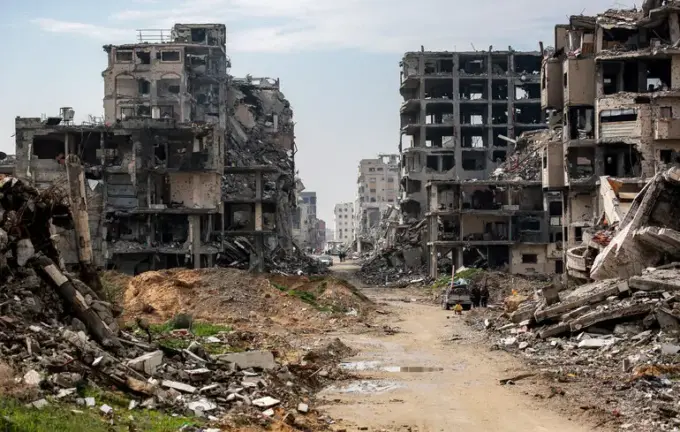Intense Clashes in the Middle East: Israel Launches New Airstrikes After Sudden Shooting in Rafah

A fragile ceasefire between Israel and Palestinian militants, established amid rising tensions in the region, has quickly collapsed.
Less than a week ago, it seemed that the internationally mediated truce would hold, but a new incident in the Rafah area in southern Gaza reignited hostilities.
The Israel Defense Forces announced that early this morning, Palestinian terrorists launched an attack with rocket-propelled grenades and sniper fire in the area where Israeli troops operate — in Rafah.
In response, Israeli Air Force aircraft and artillery targeted sites in the same region to neutralize what they described as threats, according to the Times of Israel.
Officials from the Israeli command stated that the strikes targeted the eastern side of the Yellow Line, a territory under IDF control according to previous ceasefire agreements with Hamas.
Several tunnels and buildings suspected of harboring terrorists were destroyed during the attack.
This escalation clearly violates the ceasefire agreement, and Israeli military officials have promised a strong response.
Reports indicate that Israeli forces have also targeted terrorist positions in southern Gaza, including tunnels and command centers.
Meanwhile, Hamas representatives deny involvement in the recent attack, asserting they are observing the ceasefire and have no connection to the incident in Rafah.
They emphasized adherence to diplomatic agreements and dismissed reports of provocations.
Israeli Prime Minister Benjamin Netanyahu immediately ordered the armed forces and security services to ramp up operations against terrorist facilities in Gaza to prevent further attacks.
Hours later, Israel launched a renewed series of airstrikes across southern Gaza, including strikes in Khan Younis, destroying militants’ positions and infrastructure.
Earlier, the U.S.
State Department warned that Hamas might violate the ceasefire by planning attacks on civilian populations, complicating the fragile peace process.
A ceasefire agreement brokered in late September by Egypt, Qatar, Turkey, and the U.S.
aimed to restore stability, yet the risk of renewed conflict remains high if tensions and militant activities persist.
Former President Donald Trump declared the conflict officially over, but ongoing violence and recent brutal executions in Gaza continue to cause international outrage.
Footage of executions carried out by Hamas surfaced online, eliciting widespread condemnation from human rights organizations and Palestinian authorities.
Hamas claims that those executed were collaborators with Israel or involved in the killing of civilians, while others criticize these acts as war crimes.
The situation remains volatile, with diplomacy and military actions ongoing, as the international community watches closely for signs of de-escalation.

